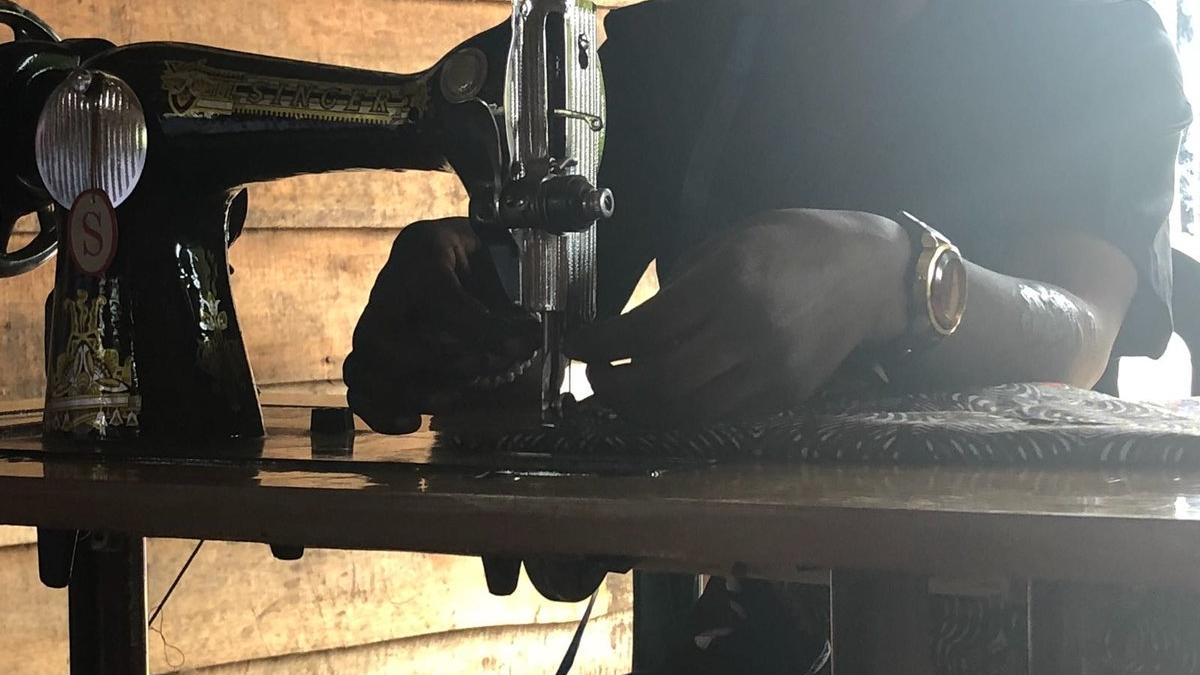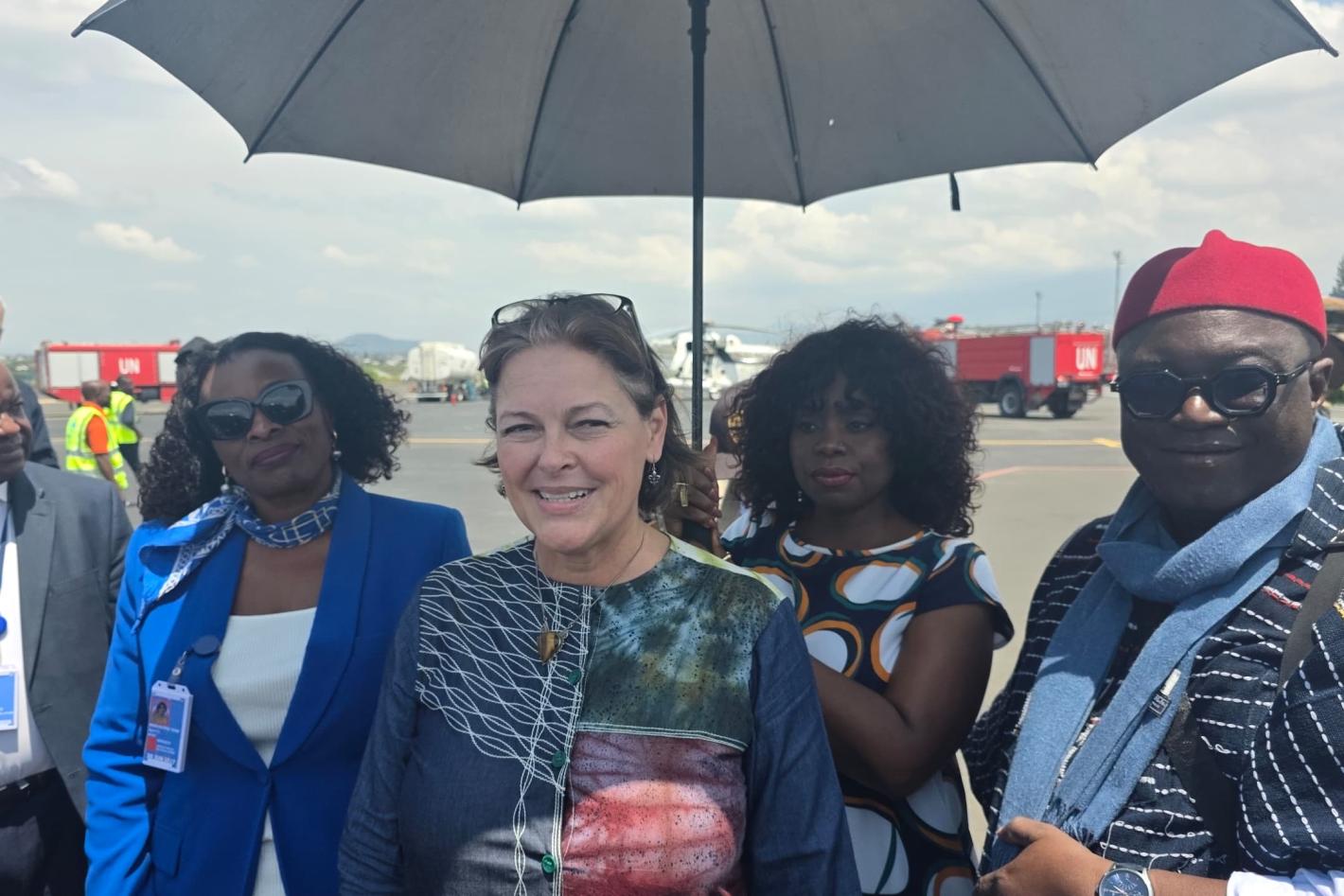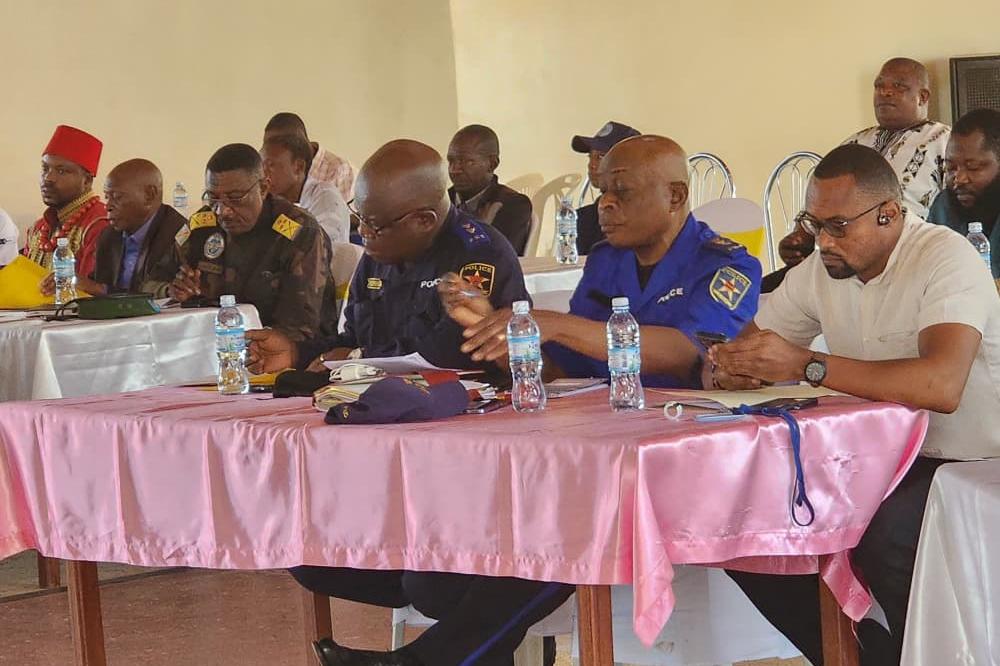As part of the UN System's efforts to end sexual exploitation and abuse by UN personnel, victims are at the heart of the response in the field.
As a result, community-based complaint reception mechanisms (CBCMs) were set-up within communities with attention to cultural and gender sensitiveness in order to maximize their effectiveness.
The purpose of these mechanisms is to empower local communities and support victims so they can report allegations without fear of reprisal or stigmatization. The proximity of the CBCMs to victims and survivors allows them to participate in private peer-to-peer conversations and thus make it possible to file a complaint with the Conduct and Discipline team of the peacekeeping mission.
As part of the implementation of its victim assistance program, MONUSCO's Conduct and Discipline team initiated a project in May 2018 to help vulnerable communities in Sake, a town located 30 kilometers west of Goma which is an important trading hub in North Kivu, and in Bujovu, a district of Goma.
“Before coming to this center to learn sewing, I was a sex worker in Sake. Now, I know that I will finally be able to take my destiny in hand,” says B *, one of the beneficiaries of this project. Running a colourful fabric through the needle of her sewing machine, she speaks on behalf of a dozen other women like her in the community. The many radiant faces around her show that getting out trouble and rebuilding oneself is vital.
In this dedicated place, inaugurated last May, some 130 women are divided into three trades: sewing, baking and mushroom-farming. The purpose of the project is to strengthen communities through vocational training for victims or people exposed to sexual exploitation and abuse and other forms of violence. The initiative aims to facilitate the reintegration of vulnerable youngsters and women in their community environment.
In Bujovu, one of the Goma neighborhoods particularly exposed to sexual exploitation and abuse through its proximity with a United Nations base, the community complaints mechanism there is active. "Since 2016, we have sensitized more than 8,000 community members," explains its president, Celestin Bahemuke. "So the number of sexual exploitation and abuse allegations recorded here has drastically decreased," he says.
Thanks to community mobilization to prevent sexual exploitation and abuse, a victim assistance project similar to the one in Sake was launched in Bujovu in August 2018. About twenty vulnerable women attend sewing classes, such as J.* who believes that her life has changed thanks to this victim-support program: "I now know how to sew simple clothes and I no longer need to resort to transactional sex to support myself".
Since 2013, MONUSCO has worked with communities to ensure that "not only the population, but also [our] personnel, are better protected from the devastating consequences that may result from these interactions," says Adama Ndao, head of the Conduct and Discipline team in MONUSCO.
Funded to US $ 175,000 by the Trust Fund in Support of Victims of Sexual Exploitation and Abuse, with contributions from Japan and Norway, these projects bring positive change to the provinces of North and South Kivu, including Bujovu, Munigi and Sake (North Kivu) and Kavumu (South Kivu).
* In order to preserve the anonymity of the beneficiaries, only the initial of the first name is kept.






